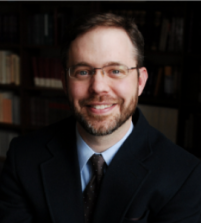Faking the Bible
In each of these instances, those acquiring scroll fragments have made illuminating statements concerning their aims.
News outlets widely reported last week that five Dead Sea Scroll fragments acquired and displayed by the Museum of the Bible in Washington, DC, are forgeries. For Dead Sea Scrolls experts, this announcement came as no surprise: a number had already raised serious questions regarding the provenance and specific contents of these scroll fragments. Because scholars voiced their concerns so clearly and forcefully long before last week’s report, many have condemned the Museum’s handling of its scroll fragments as disingenuous.
What I would like to reflect on here is not the very real problem of trafficking in antiquities or the ways that private collectors are creating a market for forgeries—or even the grievous enterprises that sales of antiquities (either genuine or forged) sometimes fund. My focus is the fraught, if also distinctly religious, motivations of those who have recently acquired Dead Sea Scroll fragments and what these motivations suggest about their religion. As others have observed, the acquisition of scroll fragments over the past decade has largely been an American Evangelical Christian phenomenon: beyond the Museum of the Bible, which is funded by the conservative Christian owners of the Hobby Lobby craft-supply chain, both Southwestern Baptist Theological Seminary and Azusa Pacific University have recently announced acquisitions of Dead Sea Scroll fragments.
In each of these instances, those acquiring scroll fragments have made illuminating statements concerning their aims. For example, in presenting the Southwestern Baptist fragments to the school’s president, seminary trustee and donor Gary Loveless opined,
Although one can’t deny or ignore the historical or archaeological value of these fragments, it is most important to me and Stephanie [Loveless’s wife] that they are in the hands of those that will acknowledge and honor their Christian and Jewish heritage and significance. It is for that reason that there’s no better institution than Southwestern in our opinion to secure these for the glory of God.
Jon R. Wallace, president of Azusa Pacific University, stated regarding the Azusa scrolls:
This acquisition allows us to tell the remarkable story of how humanity came to have the Bible, and how Scripture has been preserved through history. Having these documents also reinforces APU’s history and commitment to a high view of Scriptures.
In their recent book, Bible Nation: The United States of Hobby Lobby, Candida R. Moss and Joel S. Baden quoted Steve Green, the Museum of the Bible’s major benefactor, who remarked on the museum’s display of Dead Sea Scrolls,
It’s an incredible story to be told that really dispels a lot of the critics. Let’s look at it honestly—yeah, there’s some variations, we don’t want to say that there’s not, yeah, there is—but let’s focus. Let’s spend ninety percent [of our time] on the ninety percent [of the scrolls that are consistent with modern Bibles] and realize that’s incredible (84).
The distinctly religious motivation of these collectors is clear: in each instance, the expressed concern is some combination of the authenticity, accuracy, perdurance, religious value, and prestige of the biblical text in the face of potential detractors. Yet also present in these statements is a willful myopia—or, put more positively, a striking pragmatism—regarding those details that might undermine Evangelical Christian claims. The statements cited above suggest that certain issues raised by the fragments—for example, how textual variants in Dead Sea Scrolls manuscripts (including those acquired by institutions like the Museum of the Bible, Southwestern Baptist, and Azusa Pacific) impact claims of textual preservation or scriptural inerrancy—do not require explanations.
This conundrum calls to mind the famous line from Voltaire: “If God did not exist, it would be necessary to invent him.” Referencing Voltaire here might at first seem only amusing, but I wish to suggest a more substantive analogy. Voltaire’s statement was not a quip concerning weak-mindedness in the face of atheism, though it has sometimes been taken as such. In fact, it was just the opposite: in response to an atheistic claim, Voltaire argued (in epistolary verse!) for the social value of theism. The stanza that precedes the famous line advances this view clearly:
My house is full of lizards and rats,
But the architect does exist, and whoever denies it
Under a sage’s guise is suffering from mania.
Consult Zoroaster, and Minos, and Solon,
And the martyr Socrates, and the great Cicero:
They all loved a master, a judge, a father.
This sublime system is necessary for humanity.
It is the sacred bond of society:
The primary ground for holy equity,
The villain’s check, the hope of the just (my translation).
In these lines, Voltaire acknowledges the skeptic’s charge (“My house is full of lizards and rats”) but decides against it on pragmatic grounds (“This sublime system is necessary for humanity. It is the sacred bond of society…the hope of the just”). The Evangelical appeal to scroll fragments, I would suggest, works similarly: even if they amount to a false description, these fragments serve a greater good. They point to “the glory of God” and affirm “a high view of Scriptures.” In the case of the Museum fragments, it is paradoxically what is now proven incredible that, for Green, signaled the “incredible.” To the scholarly community, such claims carry little weight; after all, they ignore the empirical evidence and seek a predetermined end. What remains to be seen is whether supporters of the Museum of the Bible will think similarly; I suspect that they won’t. For this constituency, the evidence, equivocal and mundane as it is, has always been subordinate to an incontrovertible, heavenly truth.
| Jeffrey Stackert is Associate Professor of Hebrew Bible and Director of MA Studies at the Divinity School. |
Sightings is edited by Joel Brown, a PhD student in Religions in America at the Divinity School. Sign up here to receive Sightings via email.


